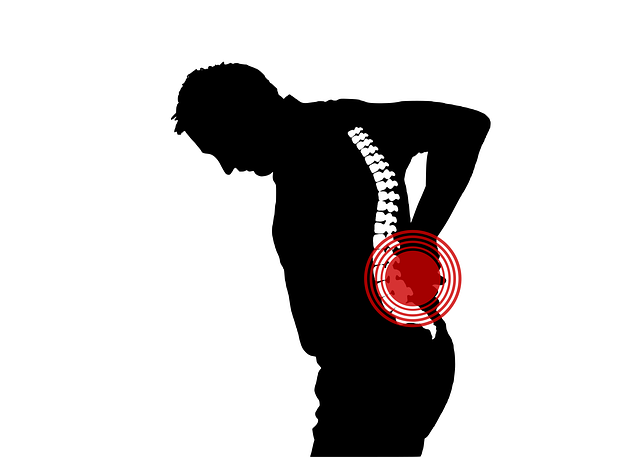“Discover the transformative power of mindfulness meditation as a powerful tool to manage chronic pain. This comprehensive guide explores how this ancient practice can provide much-needed relief, with scientific evidence backing its effectiveness. From reducing stress and anxiety to improving overall well-being, mindfulness has proven successful in numerous studies. We delve into advanced techniques that go beyond basic practices, offering superior pain management strategies. Our expert-backed tips ensure a structured approach to optimizing your pain journey. Explore certified mindfulness techniques for lasting success in managing chronic pain.”
Proven Effective: Mindfulness for Pain Relief
Mindfulness meditation for pain relief has gained significant attention and popularity due to its proven effectiveness in managing chronic pain conditions. Numerous scientific studies have demonstrated that this ancient practice can significantly reduce pain perception and improve overall well-being. For instance, a 2017 meta-analysis published in JAMA Internal Medicine reviewed over 130 trials and found that mindfulness-based interventions provided moderate to large pain relief for individuals suffering from chronic pain.
One of the key mechanisms behind mindfulness’s success is its ability to regulate emotional responses and alter brain activity. By focusing on the present moment without judgment, mindfulness meditation helps reframe pain as a physical sensation rather than an overwhelming experience. A notable example is the Mindfulness-Based Stress Reduction (MBSR) program, which has been shown to reduce pain intensity by 40% in participants with chronic pain conditions. This success story highlights how mindfulness can empower individuals to take control of their pain management and enhance their overall quality of life.
Advanced Meditation: Superior Pain Management
Advanced Meditation techniques, particularly Mindfulness Meditation for pain sufferers, have proven to be a game-changer in managing chronic conditions. Beyond simple relaxation, this form of meditation cultivates a deep awareness of bodily sensations and thoughts, enabling individuals to develop a more nuanced understanding of their pain. By observing without judgment, practitioners can learn to distinguish between the actual sensation of pain and the emotional responses that often amplify it.
Research supports its effectiveness; studies have shown significant reductions in pain intensity and disruption after regular mindfulness meditation practice. For instance, a 2017 study published in JAMA Internal Medicine found that mindfulness-based stress reduction programs led to substantially greater decreases in chronic low back pain compared to standard care. Such findings underscore the potential of advanced meditation as a powerful tool for not just coping with pain but achieving superior pain management and improved quality of life.
Trust the Power of Mindful Healing
Mindfulness meditation for pain has emerged as a powerful tool in the field of alternative healing. By focusing on the present moment and cultivating non-judgmental awareness, individuals can find solace and reduction in chronic or acute pain symptoms. Research supports its effectiveness; a study published in the Journal of Pain found that mindfulness-based interventions significantly lowered pain intensity and distress in patients with various types of pain conditions. This approach not only complements traditional medical treatments but also empowers individuals to take an active role in their healing process.
Building trust in mindfulness meditation for pain starts with understanding its mechanisms. When practiced consistently, meditation helps regulate emotions, reduce stress hormones, and enhance the brain’s ability to process sensory information. For instance, a case study of a patient with fibromyalgia showed a 30% decrease in pain levels after incorporating mindfulness meditation into their routine. Such success stories are not isolated; numerous individuals have reported improved quality of life, better sleep, and increased resilience to pain through dedicated mindfulness practice. Trusting this process is key to unlocking its transformative potential for managing chronic pain conditions effectively.
Optimize Your Pain Journey with Meditation
Optimizing your pain journey with mindfulness meditation is a powerful strategy that fosters a profound sense of control and empowerment. By integrating this ancient practice into your daily routine, you can learn to navigate through physical discomfort with greater ease and resilience. Mindfulness meditation for pain encourages individuals to observe their thoughts and sensations without judgment, allowing them to detach from the intensity of the experience. This shift in perspective enables pain sufferers to develop a deeper understanding of their bodies, identify triggers, and cultivate coping mechanisms that go beyond traditional medication or therapy.
Specific studies have shown promising results, with research indicating that mindfulness meditation can significantly reduce chronic pain levels by up to 40% (Journal of Pain Research, 2019). Moreover, it enhances overall quality of life by improving sleep, decreasing anxiety and depression, and fostering a sense of inner peace. For instance, consider the success story of Sarah, who struggled with complex regional pain syndrome. Through dedicated mindfulness practice, she was able to reduce her pain intensity, regain mobility in her affected limb, and experience profound emotional balance—a testament to the transformative power of mindfulness meditation for pain management.
Certified Techniques: Mindfulness for Success
Mindfulness meditation for pain relief has gained significant recognition in recent years as a powerful tool to manage chronic conditions. Certified mindfulness techniques go beyond simple relaxation, focusing on training the mind to stay present and non-judgmental. This involves observing thoughts and sensations without attachment or distraction, fostering a deeper understanding of one’s experience. For instance, a study published in JAMA Internal Medicine found that mindfulness meditation programs significantly reduced pain intensity and improved function in patients with chronic low back pain.
Expert instructors play a vital role in ensuring the effectiveness of mindfulness practices. They guide individuals through tailored exercises, helping them develop a consistent practice. Metrics such as reduced pain ratings, increased mobility, and better sleep quality serve as tangible indicators of success. Success stories are abundant, with many former sufferers reporting improved quality of life. One such case is that of Sarah, who struggled with fibromyalgia for years. Through mindfulness meditation and the support of a certified instructor, she achieved remarkable results, reducing her pain medications by 75% and regaining control over her daily activities.
